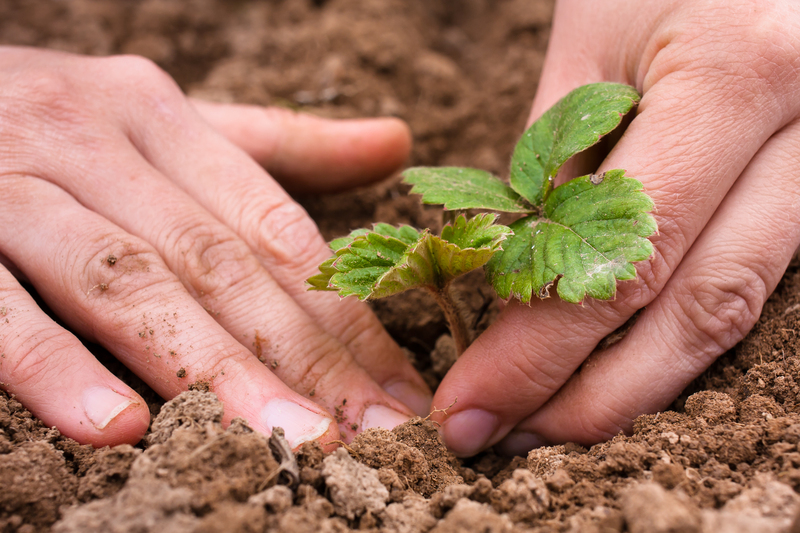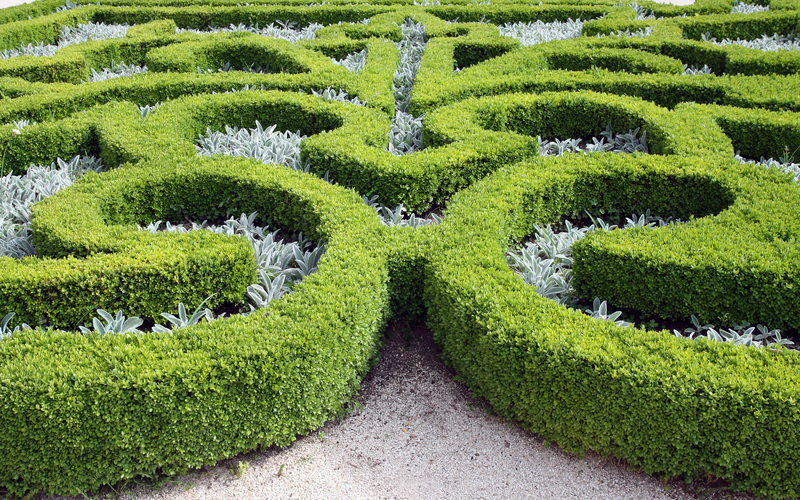Sprout Success in Gardening with These 9 Beginner Tips
Posted on 19/06/2025
Are you eager to nurture your own patch of green but unsure where to begin? Whether you're planting your first flower, growing vegetables, or simply want to beautify your surroundings, developing a green thumb is easier than you think. Dive into these 9 essential gardening tips for beginners and unlock the path to sprouting success in gardening!
Why Starting Your Garden Right Is Important
Gardening is more than just a hobby--it's a way to reconnect with nature, improve your well-being, and savor the taste and beauty that homegrown plants provide. However, every thriving garden begins with a sound strategy.
These beginner gardening tips lay the groundwork for a prosperous gardening journey and ensure that you avoid common mistakes while maximizing enjoyment and yield.

1. Choose the Perfect Gardening Spot
Selecting the right location for your garden is critical for beginners. Most plants need six to eight hours of sunlight per day. Observe your yard, balcony, or patio throughout the day, noting where sunlight is most abundant.
- Vegetables and most flowers: Thrive with full sunlight for optimal growth.
- Herbs and leafy plants: Some can tolerate partial shade.
Tip: Take photos at different times to track light exposure, making sure you settle on the sunniest and most convenient spot.
2. Start with Easy-to-Grow Plants
Kickstart your gardening success by choosing resilient varieties. Opt for beginner-friendly selections like marigolds, pansies, sunflowers, radishes, lettuce, basil, and mint. These plants require minimal maintenance and provide rapid, rewarding results.
- Research the hardiness zone for your region to ensure plant compatibility.
- Visit local nurseries for advice on the best beginner plants for your area.
3. Invest in Quality Soil
Your soil is the foundation of your garden's success. Healthy, nutrient-rich soil promotes strong roots and lush growth.
- Test your soil or consult local garden centers to understand its composition.
- Amend with organic matter--like compost or aged manure--for improved fertility and structure.
- Avoid using soil from construction sites or contaminated areas.
Pro Tip: Container gardeners should opt for high-quality potting mix instead of ordinary garden soil for better drainage and nutrient retention.
4. Master the Art of Watering
Overwatering or underwatering is a common pitfall for novice gardeners. Proper irrigation is vital to sprouting garden success!
- Morning is best: Water early so moisture absorbs before the midday sun.
- Check moisture level: Insert your finger an inch into the soil. If it feels dry, it's time to water.
- Avoid wetting leaves: Water at the base to prevent disease and fungal problems.
Remember: Each species has its own requirements, so be sure to follow specific watering guidelines for your chosen plants.
5. Understand Plant Spacing and Depth
More isn't always better! Crowded plants compete for light, nutrients, and air flow, leading to weaker growth and higher risks of disease.
- Read seed packets or plant tags: They provide essential info about spacing and planting depth.
- Never overcrowd; give your plants ample room to thrive.
- Transplant gently, disturbing the root balls as little as possible.
Tip: For veggies and herbs, stagger planting times and layouts to maximize space and harvests.
6. Feed Your Plants Properly
Nutrient management is crucial for healthy, bountiful plants. Over-fertilizing or neglecting this step can seriously hamper your success as a gardening beginner.
- Utilize organic fertilizers or compost to provide a slow, steady supply of nutrients.
- Follow label instructions--more fertilizer is not always better!
- Observe plant leaves: yellowing or stunted growth may indicate nutrient deficiencies.
Balanced feeding leads to lush foliage and robust blooms or harvests.
7. Keep Pests and Diseases at Bay
Every garden faces the challenge of unwanted visitors. Successful gardening comes down to vigilance and prevention.
- Inspect regularly: Look under leaves and around stems for insects or signs of distress.
- Choose resistant varieties: Especially if pest or disease problems are common in your area.
- Use mulch to suppress weeds, keep soil moist, and discourage pests.
- Encourage natural predators: Ladybugs and birds help keep bad bugs in check.
Organic deterrents, like neem oil or insecticidal soap, can be effective. Always follow the product guidelines!
8. Practice Regular Maintenance
Consistency is key for a flourishing garden! Set aside time weekly for basic maintenance, which includes:
- Weeding to minimize competition for resources.
- Pruning dead or damaged leaves and spent flowers--deadheading encourages new blooms.
- Supporting climbing plants with stakes or trellises as needed.
- Turning compost and checking mulch depth.
The more attentive you are, the healthier and more vibrant your garden will become.
9. Learn, Document, and Celebrate Progress
One of the most powerful gardening for beginners tips: embrace the learning process. Keep a garden journal to record what works and what doesn't, noting plant varieties, dates, weather, successes, and setbacks.
- Take photos: Monitor your progress visually and feel proud of your achievements.
- Read books, watch tutorials, and join online gardening communities.
- Experiment! Try new plants, layouts, and techniques each season.
Don't forget to take time to enjoy your garden's transformation and celebrate each milestone, from your first sprout to a full harvest!
FAQ: Answers to Common Beginner Gardening Questions
Why isn't my plant growing?
Check if your plant's environment--light, water, soil, and space--matches its needs. Most growth problems can be traced to these basic factors. Amending soil or adjusting watering can lead to big improvements.
How do I know when to water?
Test the soil with your finger. If the top inch is dry, it's time to water. Containers dry out faster, so check them daily.
Is gardening expensive to start?
Not necessarily! Start small--use repurposed containers, exchange seeds with friends, and build your own compost. Gardening can be as budget-friendly as you make it.
Can I garden indoors?
Absolutely. Many herbs, greens, and even some vegetables thrive indoors with sufficient light. Windowsills, balconies, and indoor grow lights open up endless possibilities for apartment and urban gardeners.

Bonus Tip: Be Patient and Persistent!
Even the most enthusiastic beginners encounter setbacks. Some plants might fail, but each challenge is a teachable moment. Every sprout, blossom, and harvest is a result of your persistent care and learning.
Conclusion: Start Sprouting Your Garden Success
With these top 9 beginner gardening tips, you'll be well on your way to a productive and visually stunning oasis. Remember, gardening is a delightful journey, not just a result. Plan thoughtfully, start simple, nurture often, and celebrate your growth--both as a gardener and a caretaker of the earth.
Ready to sprout success in gardening? Gather your seeds, tools, and dreams. Get growing, and enjoy the beauty and bounty your very own garden brings!
Latest Posts
Aesthetic Hedge Shaping: Techniques and Creative Ideas
The Art of Weatherproofing Your Garden Sanctuary
Soil Restoration with Transformed Organic Waste

